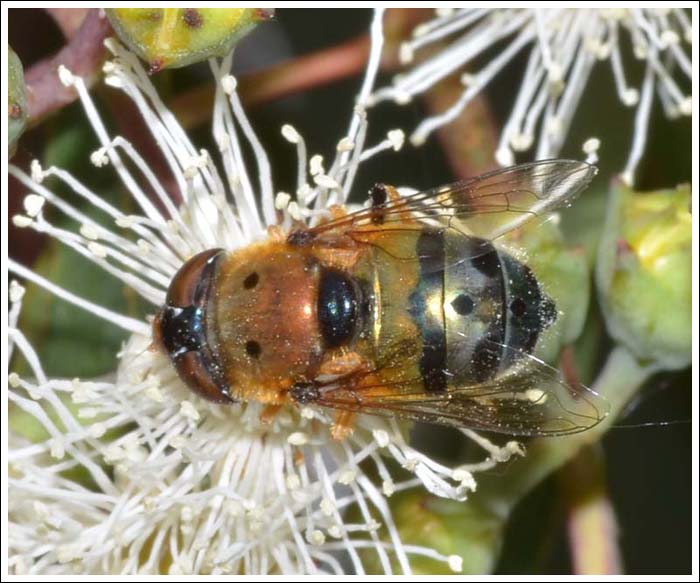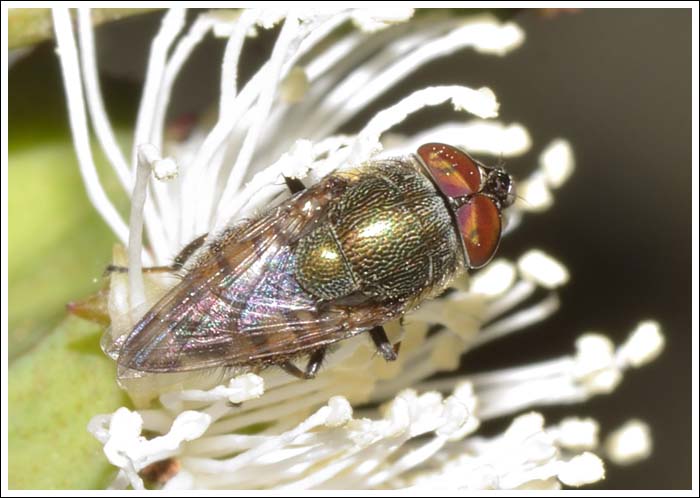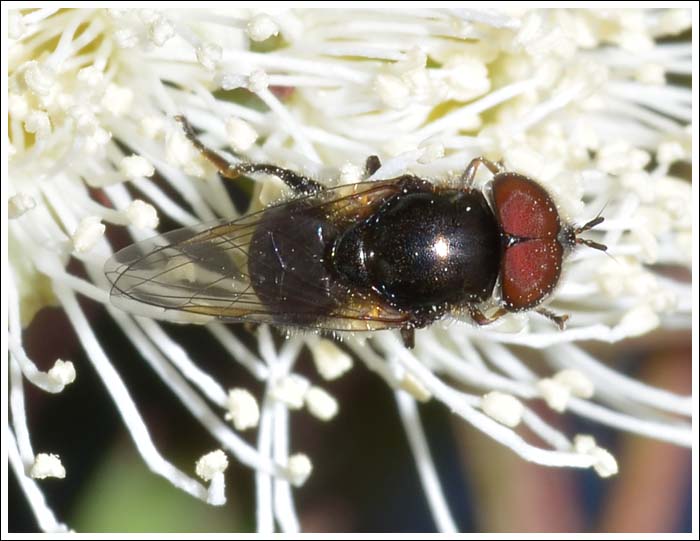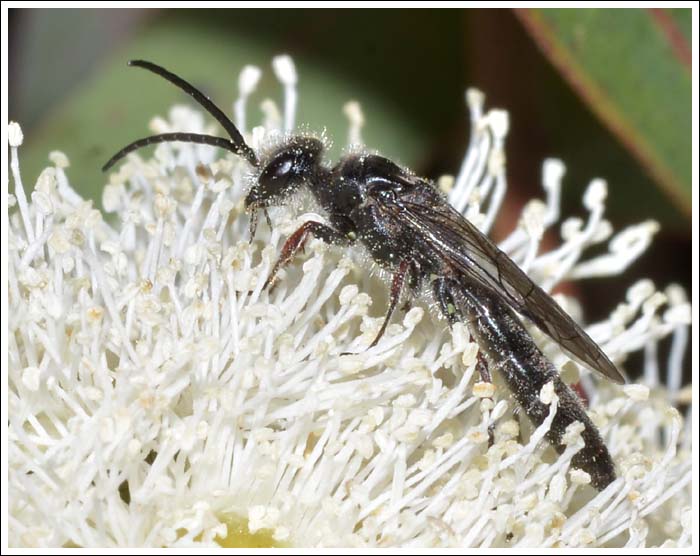There has been a bit of talk recently about the lack of Christmas Beetles, well, that has certainly been the case in this area. Forty years ago they used to appear in huge numbers and defoliate the young eucalypts in the garden, gradually they began to decline, and for years now they have been a no show. Similarly with the small nectar scarabs, Genus Phyllotocus that used to appear in swarms and congregate on white flowers, and in fact anything else white like the washing on the line, they also have been extremely scarce this season. The Angophora costata is in flower, and where there used to be thousands on the blossom, at the moment it is hard to find one to photograph. This lack of photographic subjects in the garden has with a few exceptions until recently, been the norm, but happily the angophora blossom has been attracting a range of insects that have given one’s optimism a slight boost in these times of world-wide insect decline. The unusual number of drone flies has been mentioned recently, they have been busy on the white blossom,

another hover fly, Austalis pulchella has just made an appearance for a first record.

Staying with Diptera, two nose flies, Genus Stomorhina.


The occasional flower wasp has also made a welcome appearance.

Native bees, scarce until now, are gathering pollen, with at least two species working.
Leioproctus sp.



Lasioglossum sp.
















